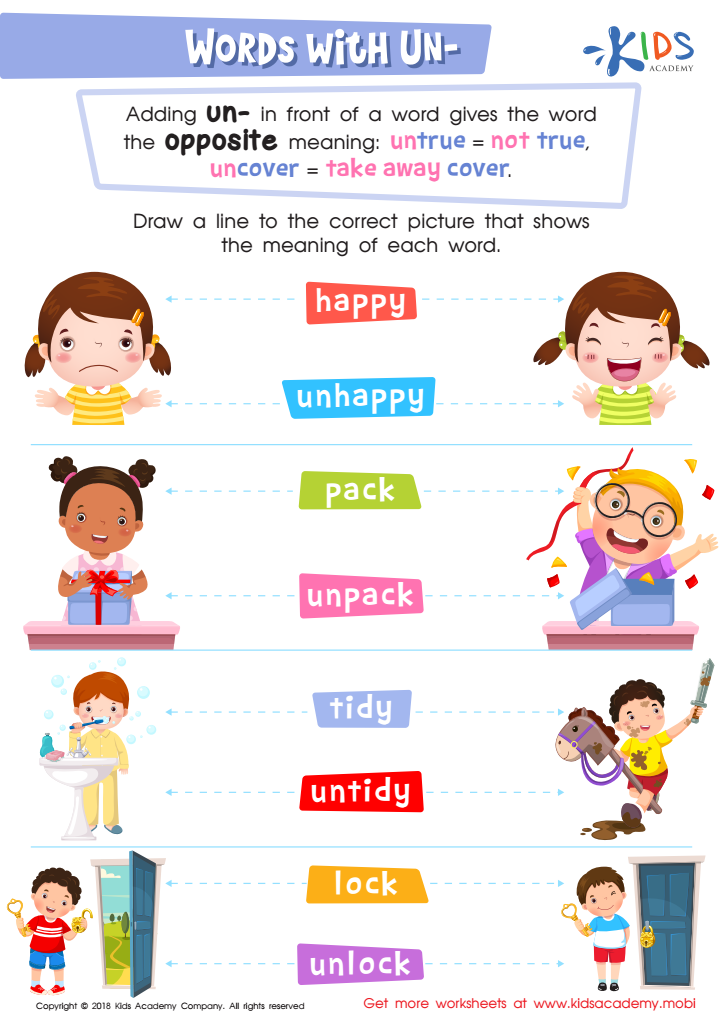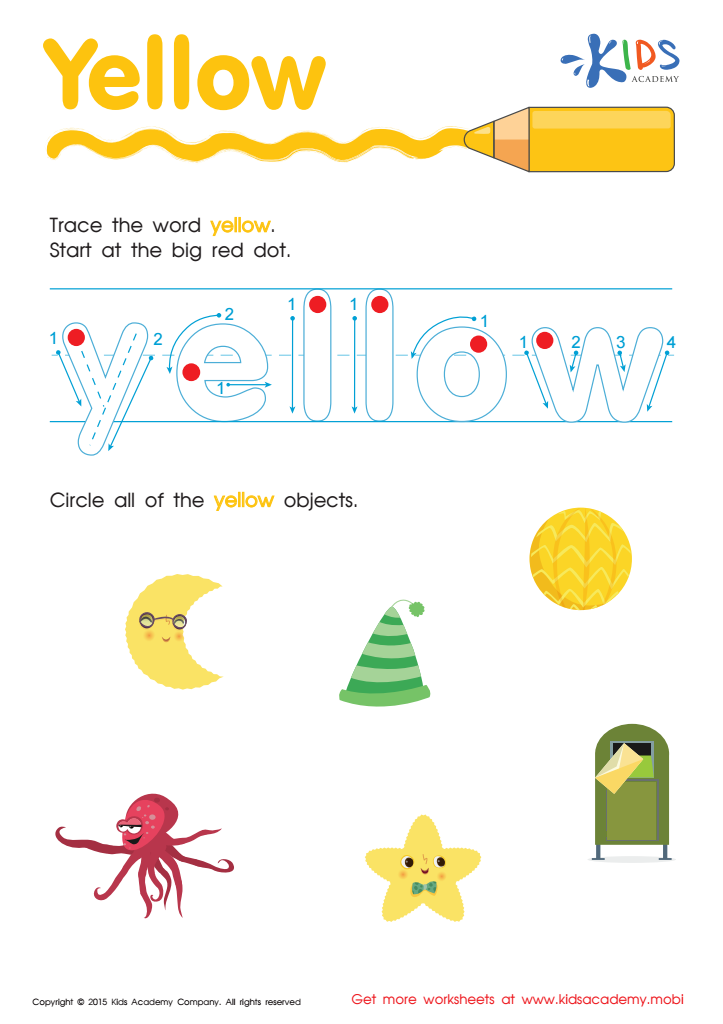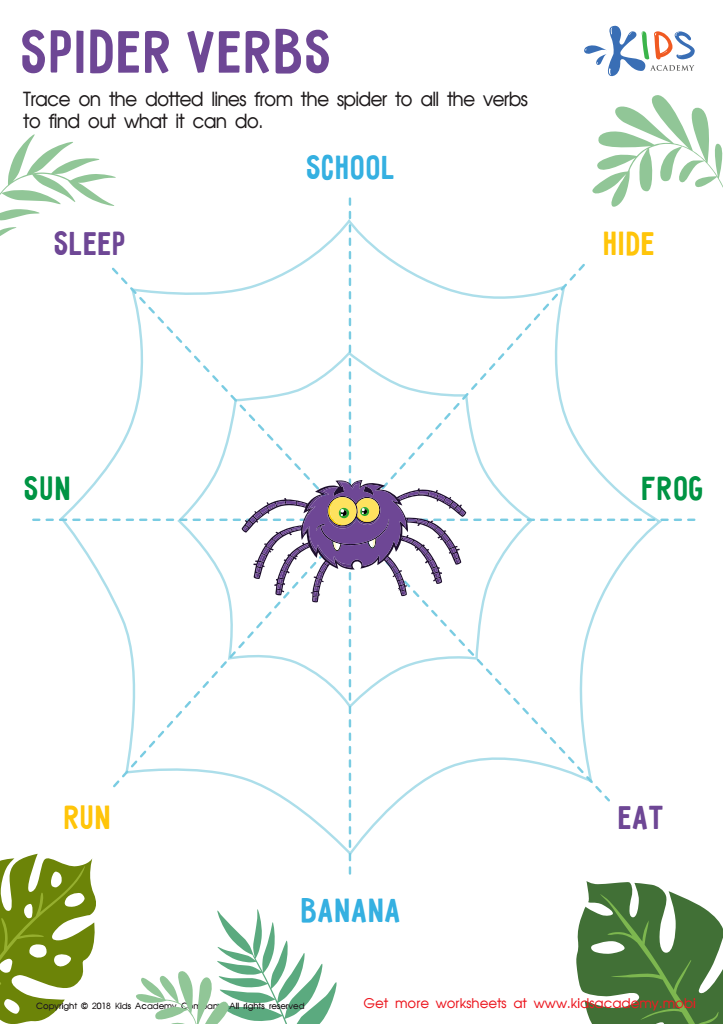Vocabulary development Writing Worksheets for Ages 4-5
3 filtered results
-
From - To
Enhance your child's language skills with our Vocabulary Development Writing Worksheets for ages 4-5. These expertly crafted worksheets are designed to expand young learners' vocabulary, foster correct word usage, and boost their confidence in language expression. Each engaging activity encourages children to connect words with their meanings through fun puzzles, picture matching, and creative exercises. By practicing regularly, your child will develop a solid foundation in vocabulary that supports future reading and writing success. Give your preschooler a head start in literacy with our delightful and educational vocabulary worksheets!


Words with Un– Worksheet


Yellow Tracing Color Words Worksheet


Spider Verbs Worksheet
Vocabulary development for ages 4-5 is crucial for both cognitive and social-emotional growth. At this formative stage, children’s brains are rapidly absorbing information, and a rich vocabulary serves as a foundation for future learning. Here are several reasons why parents and teachers should prioritize vocabulary development.
Firstly, a strong vocabulary aids in reading comprehension. When children recognize and understand words, they are more likely to enjoy reading and succeed academically. Secondly, effective communication skills are rooted in a well-developed vocabulary. Children who can express themselves clearly and understand others are better equipped to form strong relationships with peers and adults, fostering emotional intelligence and social skills.
Moreover, vocabulary development enhances critical thinking. Words are tools for thought; the more words a child knows, the more ways they have to categorize, label, and understand their experiences. This cognitive flexibility is essential for problem-solving and creativity.
Finally, early vocabulary growth sets the stage for academic success. Research shows that vocabulary size in early years is a significant predictor of later literacy skills and overall educational achievement. Thus, engaging in conversations, reading together, and exposing children to a variety of words are vital practices.
Therefore, parents and teachers play an essential role in nurturing vocabulary development, shaping a child’s lifelong learning trajectory.
 Assign to My Students
Assign to My Students




.jpg)











